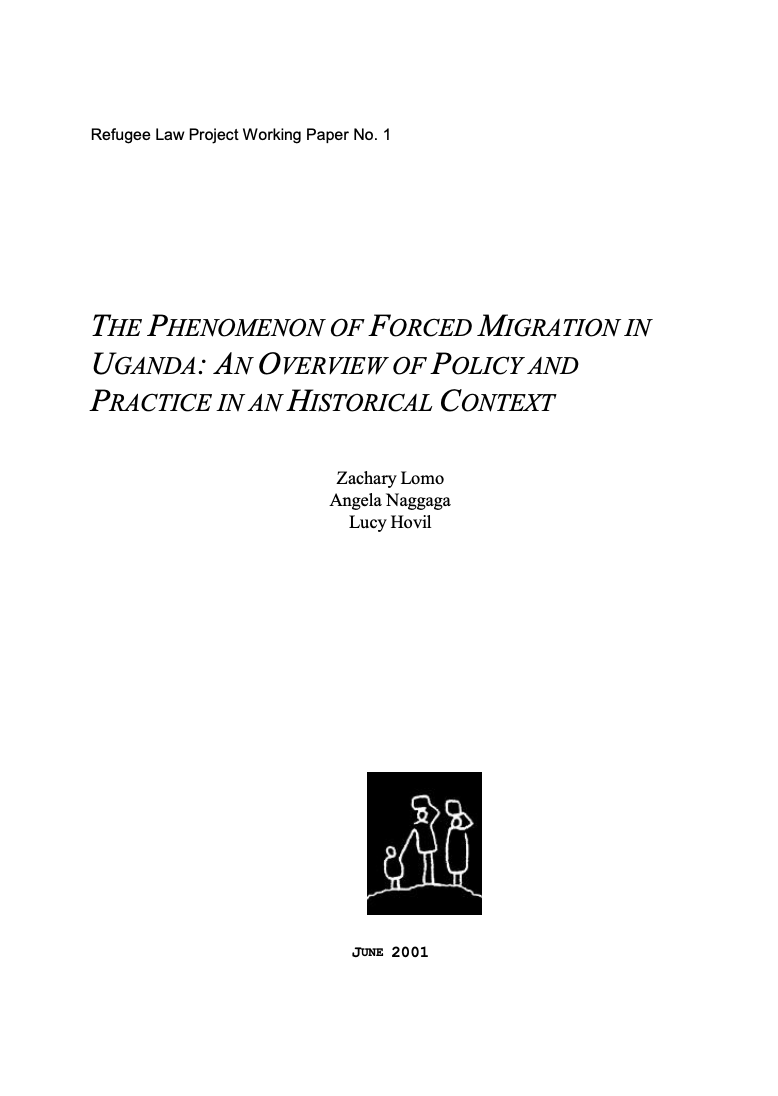This Working Paper documents the policies and procedures that affect asylum seekers and refugees living in Kampala—the political and economic capital of Uganda—by examining two key phenomena that draw them to an urban centre: first, achieving refugee status and, second, seeking resettlement to third countries.
Working Papers
Our working paper series presents in-depth analyses of specific situations that have been investigated or recorded by RLP research trips. These working papers attempt to maintain a careful balance by being academically rigorous yet highly accessible to non-specialists, bearing in mind the difficulties and risks of conducting research in often volatile regions.
This is the final report in a four-part series on conditions for refugees living in Uganda’s northern settlements. It focuses on the impact of violent conflict on those living within Pader District and incorporates the testimonies of both refugees and Internally Displaced Persons. The report shows the extent to which, for the many displaced people in the district, violence has become an intrinsic part of their everyday lives.
This report is the third in a series of four on conditions for Sudanese refugees living in Uganda’s northern settlements. Working Paper 4 concentrates on Moyo district and investigates the dynamics that influence the movement patterns of refugees living in the area.The report illustrates the contrast between those refugees who are living in settlements— and, therefore, within the official assistance structures— and those who have chosen to be self-settled.
This report is the second in a four paper series on conditions for Sudanese refugees living in refugee settlements in the districts of northern Uganda. The overriding focus of these studies is the security situation within the refugee locations. Working Paper 3 concentrates on Arua district and considers this issue within the wider framework of general human security.
There are approximately 74,000 Sudanese refugees currently living in Adjumani District. A significant number of reports of insecurity in these settlements were ratified by fieldwork on the issue. Findings indicate that insecurity stems primarily from two sources: Lord’s Resistance Army (LRA) attacks which involve looting and abductions, and problems related to forced recruitment conducted by the Sudan People’s Liberation Army (SPLA).
This working paper offers a brief overview of Uganda’s refugee situation. Uganda has been a major destination country for refugees throughout most of its history, and has generated many refugees itself. Additionally, conflict within Uganda has created a sizeable population of internally displaced persons (IDPs).









